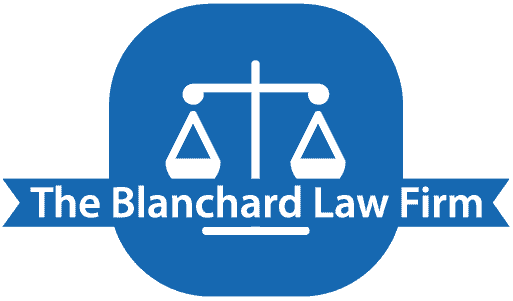
31 May The Role of Probate Attorneys: When to Hire Legal Counsel and What to Expect
Probate Attorney Responsibilities

A probate attorney, also known as an estate attorney, specializes in guiding individuals through the legal process of administering a deceased person’s estate. The role of a probate attorney is multifaceted, involving various responsibilities to ensure that the deceased’s assets are distributed according to the law and the decedent’s wishes.
One of the primary duties of a probate attorney is to assist the executor of the will, or the appointed personal representative if there is no will, in navigating the probate process. This involves filing the necessary legal documents with the probate court to initiate the process. The attorney will ensure that all paperwork is correctly completed and submitted on time, helping to prevent delays and potential legal issues.
The probate attorney also plays a crucial role in identifying and inventorying the deceased’s assets. This includes locating all of the decedent’s property, such as real estate, bank accounts, investments, personal belongings, and any other valuables. The attorney may also help appraise the value of these assets if necessary.
In addition to asset management, probate attorneys are responsible for addressing any outstanding debts or liabilities of the deceased. They will notify creditors of the decedent’s death and ensure that valid claims are paid from the estate. This can involve negotiating with creditors or disputing unlegitimate claims.
Tax matters are another critical area where probate attorneys provide expertise. They assist in the preparation and filing of the final income tax returns for the decedent, as well as any estate tax returns that may be required. Ensuring compliance with tax laws is vital to avoid penalties and legal complications.
Probate attorneys also represent the estate in any legal disputes that may arise. This can include challenges to the validity of the will, disputes among beneficiaries, or claims from individuals who believe they are entitled to a portion of the estate. The attorney’s role is to advocate for the estate and work towards a resolution that aligns with the law and the decedent’s wishes.
Furthermore, probate attorneys offer guidance on distributing the remaining assets to the beneficiaries. This process must be done according to the instructions in the will or, if there is no will, according to state intestacy laws. The attorney ensures that the distribution is handled fairly and legally, providing clear communication to all parties involved.
Hiring legal counsel is a critical decision that can significantly impact the outcome of legal matters. Whether you are dealing with a personal issue, business-related concerns, or navigating complex legal procedures, knowing when to seek professional legal advice and what to expect from the process is essential.
When to Hire Legal Counsel
- Facing Criminal Charges: If you are accused of a crime, hiring a criminal defense attorney is imperative. The consequences of criminal charges can be severe, including imprisonment, fines, and a criminal record. An attorney can provide a robust defense, negotiate plea deals, and protect your rights.
- Civil Litigation: Hiring an attorney can be crucial when involved in a lawsuit, whether as a plaintiff or defendant. Legal disputes over contracts, property, personal injury claims, or business issues require specialized knowledge and experience to navigate effectively.
- Divorce and Family Matters: Divorce, child custody, and other family law issues can be emotionally charged and legally complex. An attorney can help you understand your rights, negotiate settlements, and represent your interests in court.
- Business Formation and Operations: Starting or managing a business involves numerous legal considerations, from drafting contracts to ensuring compliance with regulations. Legal counsel can help you avoid pitfalls, protect your intellectual property, and handle disputes that may arise.
- Estate Planning and Probate: Creating a will, establishing trusts, and managing an estate require precise legal documentation to ensure your wishes are carried out. A probate attorney can also assist in navigating the probate process after a loved one’s death.
- Real Estate Transactions: Buying or selling property involves significant financial and legal risks. An attorney can review contracts, resolve title issues, and ensure the transaction complies with all legal requirements.
- Employment Issues: Whether you are an employer facing labor disputes or an employee dealing with workplace discrimination, an employment attorney can provide guidance on your rights and obligations.
What to Expect When Hiring Legal Counsel
- Initial Consultation: The first step is typically an initial consultation. During this meeting, you will discuss your situation, and the attorney will evaluate your case. This is also your opportunity to assess whether the attorney is a good fit for you. Be prepared to ask questions about their experience, fees, and approach to your case.
- Understanding Fees: Legal fees can vary widely based on the complexity of the case, the attorney’s experience, and your location. Some attorneys charge hourly rates, while others may offer flat fees or contingency fees (where they only get paid if you win the case). Ensure you understand the fee structure and get a written agreement.
- Attorney-Client Relationship: Once you hire an attorney, you will establish an attorney-client relationship. This relationship is built on trust and confidentiality. Your attorney must keep your information private and provide you with competent representation.
- Case Assessment and Strategy: Your attorney will thoroughly assess your case, gather evidence, and develop a legal strategy. They will explain different approaches’ possible outcomes, risks, and benefits. It is crucial to provide all relevant information and be honest about the facts of your case.
- Negotiations and Settlements: In many legal matters, negotiation and settlement are preferable to going to trial. Your attorney will negotiate with the other party or their legal counsel to reach a favorable resolution. This can save time, money, and reduce stress.
- Litigation and Court Representation: Your case may proceed to court if a settlement cannot be reached. Your attorney will prepare legal documents, file motions, and represent you in court hearings and trials. They will present evidence, question witnesses, and make legal arguments on your behalf.
- Ongoing Communication: Effective communication is essential throughout the legal process. Your attorney should keep you informed about the progress of your case, explain legal developments, and answer your questions. Do not hesitate to reach out to your attorney for updates or clarification.
- Final Resolution: The goal of hiring legal counsel is to achieve a favorable outcome for your case. Your attorney will work towards achieving your legal objectives through settlement, court judgment, or other resolution. They will also assist with any post-resolution matters, such as enforcing a judgment or handling appeals if necessary.
The Difference With The Right Counsel

Hiring legal counsel can significantly affect the outcome of legal matters. Attorneys bring specialized knowledge and expertise that most individuals do not possess, enabling them to navigate complex legal systems effectively. They understand the intricacies of the law, procedural rules, and the nuances of legal arguments, which can be pivotal in achieving favorable results.
In criminal cases, a skilled defense attorney can protect your rights, negotiate plea deals, and potentially reduce or dismiss charges. In civil litigation, an attorney can help gather evidence, build a strong case, and negotiate settlements that might be more favorable than what you could achieve on your own. Legal counsel can draft agreements that protect your interests and mitigate risks for business and contract matters.
Moreover, attorneys provide invaluable support in emotionally charged situations like divorce or custody disputes, offering objective advice and representation to ensure fair outcomes. They also manage the legal complexities of estate planning, ensuring your assets are distributed according to your wishes.
Conclusion
Hiring legal counsel is a crucial step in addressing legal challenges effectively. Knowing when to seek professional legal advice can help you navigate complex legal landscapes, protect your rights, and achieve favorable outcomes. From the initial consultation to the final resolution, understanding what to expect can help you make informed decisions and work collaboratively with your attorney. Legal matters can be daunting, but with the right legal counsel, you can approach them with confidence and clarity.

Sorry, the comment form is closed at this time.